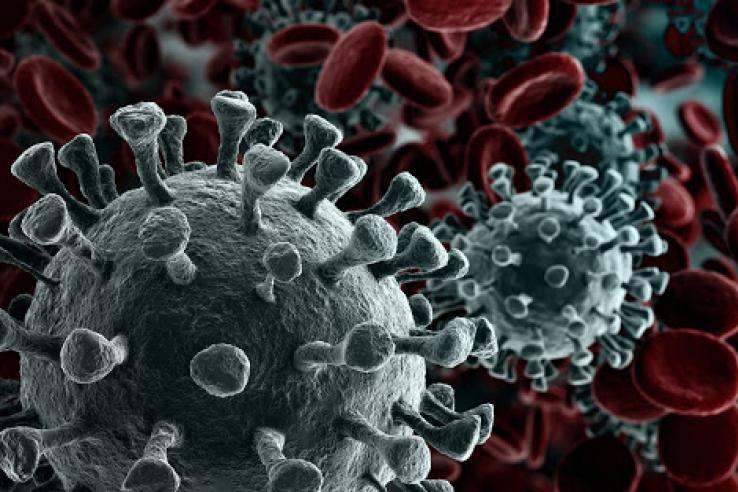March 2020 Newsletter

J-PAL’s response to COVID-19
The COVID-19 pandemic has directly imposed untold suffering on the health, livelihoods, well-being, and freedoms of hundreds of millions worldwide, and is causing incredible uncertainty and stress. At J-PAL, our priority is the safety of our staff, students, researchers, partners, study participants, and the communities we live and work in. Over the past few weeks, we have been dynamically adjusting our policies, starting with restricting travel and enforcing social distancing, but quickly evolving to worldwide mandatory work from home and suspension of all field research.
We are working to adapt our research techniques while preserving the health and safety of research teams and study participants, open off-cycle competitions to fund research that will generate rapid, actionable insights that can inform policy responses to the pandemic, and review the existing evidence to identify insights that can inform policy related to preventive health behaviors, social protection, online education, and other topics. Our staff and experts from our research network are available for policymakers, institutions, and governments seeking evidence-based insights to inform response strategies.
J-PAL’s Global Executive Director Iqbal Dhaliwal outlines additional measures we are taking to respond to the COVID-19 pandemic and ensure the safety of all our communities. Read more »
Adapting to COVID-19: Best practices for conducting phone surveys
As of March 17, J-PAL has suspended all research activities that involve in-person interactions in order to limit the spread of COVID-19. Drawing on expertise from across our network, J-PAL’s Research and Training team has compiled best practices on transitioning from in-person surveys to online or phone-based surveys. Read more »
insights from existing research
While the world is grappling to better understand and respond to COVID-19, evidence from existing research can help inform preventive health measures and decisions in the interim.
How we can encourage better and more frequent handwashing
Handwashing with soap is an effective and low-cost way to mitigate the spread of infectious diseases, like COVID-19. In Peru, J-PAL affiliated researcher Paul Gertler (UC Berkeley) and co-authors tested a large-scale handwashing intervention that introduced an innovative mix of mass media campaigns along with more intensive community activities. They found that the program improved knowledge related to handwashing and modified behaviors. Read more »
How peers can influence health decisions
Many governments are advising residents to socially distance themselves, wash their hands regularly, and take various actions to protect themselves against COVID-19. Adherence to these recommendations could be improved by leveraging what we know about ways peers’ behavior could motivate others to adopt these recommended behaviors.
For example, a study in Kenya by J-PAL affiliated researcher Pascaline Dupas (Stanford; Co-Chair, J-PAL Health sector) found that living close to neighbors who received a large subsidy to obtain an insecticide‑treated bednet increased the likelihood that a household would also purchase a bednet. Read more »
In Nepal, J-PAL affiliated researcher Rebecca Thornton (University of Illinois) and co-author Emily Oster introduced a convenient and hygienic sanitary product, reusable menstrual cups, to Nepalese girls in the seventh and eighth grades. They found that having more friends who received a menstrual cup increased adoption by other adolescent girls in their schools. Read more »
We’re all in this together. And we can only succeed together.
Dr. Tedros Ghebreyesus, Director-General, World Health Organization, via @WHO
UPCOMING EVENTS
March 24: Research adaptations for phone surveys with Tavneet Suri
Join us for a webinar with Tavneet Suri (MIT; Scientific Director, J-PAL Africa; Co-Chair, J-PAL Agriculture sector), who will share insights from transitioning a large-scale survey on the effects of a universal basic income in Kenya from in-person to phone interviews, with a focus on shortening and adapting questionnaires. Learn more and register »
MEDIA HIGHLIGHTS
Insights from the global research community on the economic impacts of the COVID-19 pandemic.
Coronavirus: How to work from home, the right way
BBC Worklife
‘Over-reacting is better than non-reacting’ – academics around the world share thoughts on coronavirus
World Economic Forum
5 lessons for using universal basic income during a pandemic
Brookings
How will COVID-19 affect women and girls in low- and middle-income countries?
Center for Global Development
How to practice social distancing while helping the economy (Opinion)
Washington Post
FEATURED JOBS
While we are not currently conducting in-person interviews due to the COVID-19 pandemic, we are still hiring for a number of open positions. Explore open positions around the world »